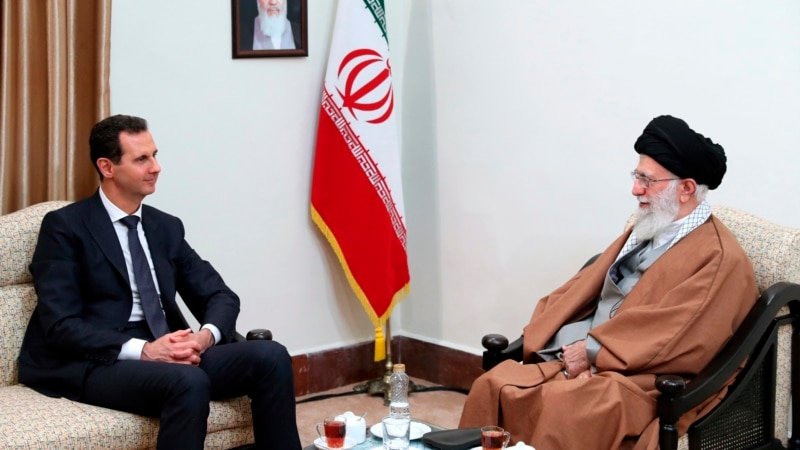
Regional analysts say the overthrow of Syria’s Bashar al-Assad regime has opened the door to new dynamics in the Middle East, potentially giving Turkey the upper hand, Iran in retreat and Iraq vulnerable to Iranian pressure. Getting more freedom.
The Assad government has been in power in Syria for 54 years – first with the elder Hafez al-Assad and later with son Bashar of the minority Alawite community, a branch of Shia Islam. Regional analysts say its decline marks a seismic shift in Middle East politics.
Sinan Ulgen, a senior fellow at Carnegie Europe, speaking during a webinar at the Carnegie Middle East Center in Beirut on December 19, called it a “political earthquake” with far-reaching regional implications.
“Fundamentally, we are now seeing the emergence of a government in Syria that will probably actually be more pro-Turkey than pro-Iran after 50 years,” Ulgen said. “This is a permanent change in the regional power group, which is another reason why Assad’s fall has been greeted with so much enthusiasm in the Turkish capital, Ankara.”
Elie Geranmayeh, deputy head of the Middle East program at the European Council on Foreign Relations, said that Israeli attacks on Iranian assets in Syria and its Hezbollah supporters in neighboring Lebanon, as well as Israeli military strikes on the center of the Iranian capital Tehran, “are a threat to Iran.” Present a moment of regional reckoning”.
“it [Iran] Definitely on the backfoot,” she said. “There is now a strategic rethink taking place in the establishment … about where their policies – both at home and abroad – go from here.”
Geranmayeh said key figures in Iran’s powerful Revolutionary Guard Corps are likely to be replaced with others, given the country’s weak regional position and the near collapse of the so-called axis of resistance in Syria, Lebanon, Iraq and Yemen.
He said Iran would likely plant a story that late Revolutionary Guard commander Qassem Soleimani’s regional project to encircle Israel with a so-called Ring of Fire is “completed”, and that Iran would prepare other plans to deal with the new threat. Reality has to be faced.
“Iraq is the last bastion for a pivot of resistance to Iran,” said Harith Hasan, a nonresident senior fellow at the Carnegie Middle East Center, “but that could change, too.”
“So, Iran may try to defend that influence strongly,” Hassan said. “But as we see, the balance of power has changed a lot, and the Iraqi government has gained more freedom to be able to resist some of the pressures coming from Tehran.”
Hassan said concerns about a potential Islamist-led government in Syria are also causing concern to its neighbors as well as regional political influencers Saudi Arabia and the United Arab Emirates.
Due to its long border with Syria and strong cross-border ties between the two countries, “Iraq could gain new strength”, he said.
Hassan said this could provide Iraq a way out of Iran’s influence as development continues in the region.